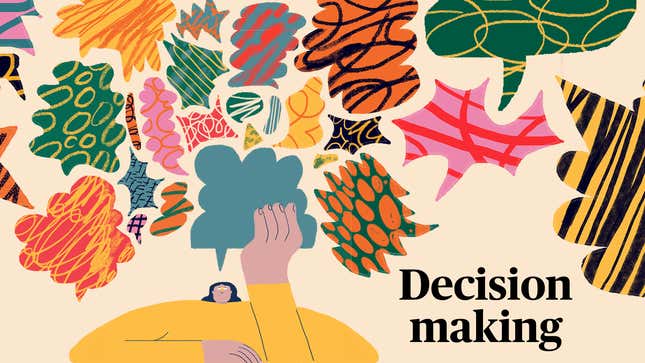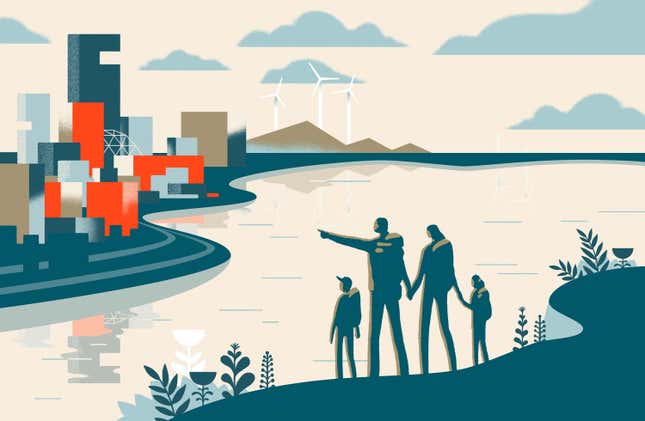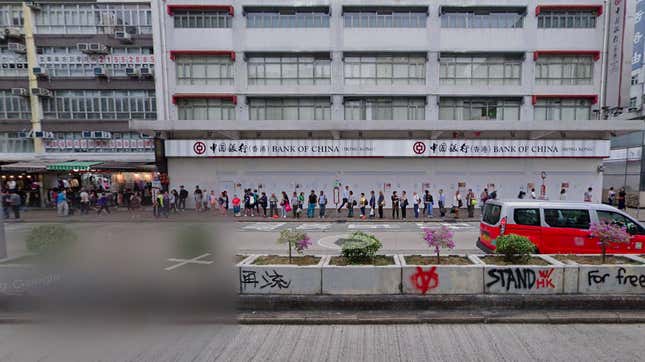Good morning, Quartz readers!
Here’s what you need to know
The Dreamliner is a recurring nightmare for Boeing. The aerospace giant disclosed new issues affecting the 787 Dreamliner’s horizontal stabilizer one month after grounding eight of the jets over a separate manufacturing issue. Boeing stock fell over 5% after the news was reported.
Uber committed to zero emissions by 2040. The ride-hailing company’s timeline, combined with an $800 million investment, would achieve Paris Climate Agreement targets a decade ahead of schedule. And General Motors is lending a hand, offering Uber drivers hefty discounts on 2020 Chevy Bolt vehicles.
GM further shook the electric vehicles market. The Big 3 automaker announced a $2 billion equity stake in electric truck maker Nikola, sending shares of the fledgling nameplate up around 40%. US markets were broadly negative on Tuesday, with tech leading the way and Tesla off 20% after being overlooked for S&P index inclusion. International oil prices also felt the sting, settling down by around 9%.
Myanmar soldiers confessed to Rohingya mass killings for the first time. The New York Times obtained video confessions admitting to wiping out “about 20 villages” among other atrocities. Myanmar’s election season began on Tuesday with Aung San Suu Kyi’s ruling National League for Democracy party expected to win handily.
Apple announced a September product-launch event. The virtual showcase, taglined “Time Flies,” will likely feature new iPads and Apple Watches with iPhones rumored to be revealed in a separate event in October.
Obsession interlude: Beyond Silicon Valley
To understand a Quartz obsession, it helps to check the numbers. Here are some figures that explain why India is central to looking Beyond Silicon Valley:
450 million: Internet users in India, the world’s second-largest user base after China—even though less than half of India’s population has access to the web.
24: Number of unicorns in India, the fourth highest in the world after the US, China, and the UK.
$21 billion: Money raised by Jio Platforms, the digital services business run by India’s richest man, between April and June. Investors include Facebook, Google, and Saudi Arabia among others.
$16 billion: Amount Walmart paid in 2018 to acquire a majority stake in Indian e-commerce unicorn Flipkart. It’s Walmart’s biggest-ever acquisition and the world’s largest e-commerce buyout to date.
$10 billion: How much Google plans to invest in India over the next seven years.
Keep up with our Beyond Silicon Valley obsession.
Charting India’s smartphone market share
Two years after it beat long-time incumbents to become the market leader, Chinese smartphone maker OnePlus saw its share of India’s premium smartphone segment sliding in recent months, mainly due to its made-in-China tag.

Scores of Indians already blamed China for the Covid-19 outbreak, and things got worse when 20 Indian soldiers were reportedly killed on the Chinese border in the Galwan Valley in June. Indian calls to #BoycottChina have only grown since then.
You’re overconfident (and in good company)

Of all the errors in human judgment, overconfidence may be the most damaging. Psychologists Don Moore, of the University of California, Berkeley, and Max Bazerman of Harvard, call it “the mother of all biases” in their textbook on decision making.
Overconfidence comes in many forms, but “it is overprecision that I think is the most consistent and pernicious,” says Moore, the author of Perfectly Confident: How to Calibrate Your Decisions Wisely.
Overprecision involves being too sure of the accuracy of your own beliefs, and, inspired by a test in Moore’s book, Quartz created a tool for you to identify and work around overconfidence, which can lead to costly errors when making decisions. Try it out—it’s part of our field guide this week on the topic.
✦ We’re just the right amount of confident that you’ll enjoy a Quartz membership. You can access our full library of guides—and enjoy a paywall-free experience sitewide—by joining today.
Preparing for climate change

Millions of migrants will be in search of climate havens this century—Quartz can’t build a real one, so we did the next best thing and created the fictional city of Leeside. But other, very real communities are starting to make moves.
🏙 Get ready. India’s megacities aren’t ready for a wave of climate migrants from agricultural areas that are being hit hardest.
🌊 Preserve cultures. Institutionalized racism in the US has put people of color in the greatest danger, so the South Carolina Lowcountry is rounding up its stories before it’s too late.
🏝 Shore up the shores. Atoll islands have immediate needs to consider, like moving a population en masse, building new islands, or raising existing ones.
🏠 Consider not committing. Buying a house in the era of climate change is no longer the safe bet it used to be.
Surprising discoveries

“Don’t be readable.” Words and phrases ranging from “FK popo” to “democracy” have been rendered illegible on Google Maps Street View.
A different kind of Uber Black. A Japanese taxi company will send a driver to visit graves for those unable to travel for the annual Obon holiday.
The Chinese seeds won. The US government warned households not to plant mysterious seeds, but hundreds ignored the advice.
Coronavirus has been good for chess… between March and August, livestream viewing of chess matches on Amazon-owned Twitch boomed four-fold.
…but bad for chips. A Manhattan dentist reports that stress, awkward working arrangements, and a lack of sleep are driving a surge in tooth fractures.
Our best wishes for a productive day. Please send any news, comments, dentist bills, and chess tips to hi@qz.com. Get the most out of Quartz by downloading our app on iOS and becoming a member. Today’s Daily Brief was brought to you by Max Lockie and Susan Howson.